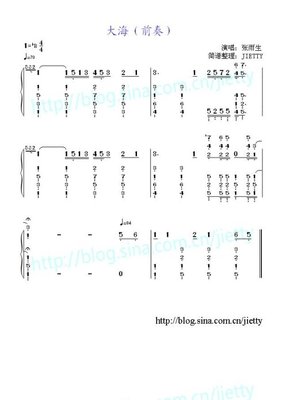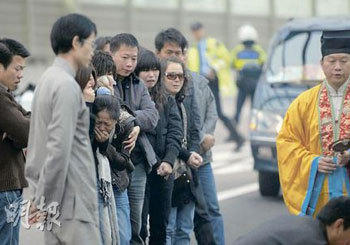CS: Chinese Journal of Communicationand Society
MC: Manuel Castells
CS: As a leading social theorist and urbanscholar. how did you find your personal journey into the studies ofcommunication? Is your interest in information technology the maincause? Any other reasons? Overall, what is the theoretical locationof media in the conception of network society?
MC: Throughout my intellectual trajectorythere is a recurrent, central theme: the study of powerrelationship, as they are the foundation of society. When I studiedurban issues were critical for the formation of new state policiesand new media and the horizontal networks of communication realm,including the new media and the horizontal networks ofcommunication in the new technological environment, is the field inwhich power relationships are played out. Communication is thecenter of politics in our world, thus my interest in the lastdecade, and my decision to move entirely to this field, incoherence with my thinking.
CS: How applicable is the theory ofnetwork society in China? Many Chinese readers of your trilogyregard new social networks based on the Internet and mobile phoneas supplementary to China’s traditional guanxi networks. Otherseven see IT networks as a temporary remedy for age-old socialproblems and as a compensation for the underdevelopment of socialinfrastructures. What is your take on such views?
MC: The network society is based on theinteraction between information and communication technologies andsociety as a whole. The network society is global. But the networksociety also is built on the opposition between the net and theself, between global networks of instrumentality and culturalconstructions of identity, as I explained in detail in my trilogy.Thus, China is a network society because it is globallyinterdependent, and at the same time is also based on specificcultural identity. And Internet and mobile communication networksare a fundamental infrastructure of new forms of organization andsocial relationships in China. However, how applicable my theory(which is a general theory) is to China can only be established byChinese researchers, applying it, and modifying it, to the Chinesereality. I will incorporate their findings to my theory and changeit accordingly.
Theoretical and MethodologicalOrientations
CS: Everyone is talking aboutinterdisciplinary research these days. Indeed, this journal aspiresto contribute to the interdisciplinary study of communication. Yourstudies appear to have straddled social theory, urban studies,politics, culture, economics, and communications. Do you think thatit makes sense to treat communication as a discipline by itself?Can you draw on your research experience to shed light on the realpromise of interdisciplinary research? What are the main obstaclesto interdisciplinary research? How to overcome them?
MC: Communication is an interdisciplinarydiscipline, as planning is or business is. Meaning, on the one handit has the specificity of the object (communication), on the otherhand it needs to rely on very different disciplinary traditions andrelate them to its specific object. I am convinced thatintellectual innovation happens in interdisciplinary fields. Thisis the same for biological sciences or computersciences.
Main obstacles to accept this reality arethe vested interests of established disciplines and professions.You overcome the obstacles by just doing your work and achievingexcellence without wasting time in sterile border disputes andbureaucratic quarrels.
CS: Given the influence of Marxism on yourearlier scholarship, to what extent do you find Marxism stillrelevant to the analysis of the network society in general andChina in particular, if at all? Marxism emphasizes dialectics, asdoes Daoism. How come you seldom use the term “dialectics”? Isthat a deliberate choice?
MC: I stopped using Marxism because I didnot find it useful to understand what I was studying. I have aninstrumental view of theory. You use what is useful and you discardwhat is not, and this evolves with research and with society. Istill think there are some interesting concepts and perspectives inMarxism, such as mode of production, class analysis, the concept ofthe state as an apparatus of social domination. But overall, mostof what we need to understand today, in China and in the world,requires a much broader theoretical approach, of which Marxism is asmall part. Dialectics is a philosophical theory. I am not aphilosopher. I am an empirical researcher, and I have no use forthis kind of philosophical debates in my work.
CS: You engaged yourself in socialmovements at various times. In some cases, social movements appearto have played significant roles in transforming powerrelationships and cultural values. The student and culturalmovements in the sixties and seventies have left their imprints inboth the United States and Western Europe. For any social movementto happen and to be effective, it seems that communication isindispensable. On July 1 2003, more than half a million people inHong Kong took to the streets to protest against a nationalsecurity legislation. Without communications, it is difficult toimagine how such massive mobilization could be achieved and how itsimpact could be felt in Beijing and other parts of the world. Whatdo social movements mean to you as a scholar and as an individual?How do you see the relationship between social movements andcommunication nowadays? In China today, for example, we see somemovements that are based on ICT as well as others that are not. Howabout these people being excluded from digital networks? How dotheir movements matter, if at all?
MC: First, I always tried to separate mypersonal participation in social movements from my scientific work,including the work on social movements. If you mix both in the sameprocess you do bad research and you are not able to be a goodsocial actor. Social movements, throughout history, are the mainsource of social change. So they are in China, then and now. Butthey could come in unexpected formats, because social movements arenot always progressive and democratic.
Social change can also be regressivesocial change. Communication is central in social movements,because for social actors to induce mobilization on a large scale,they need to communicate with society. New communicationtechnologies increase the capacity of social actors to communicateautonomously bypassing the mass media or acting on the mass media.The emergence of what I call mass self-communication (Internet,wireless networks) is a new factor that is transforming thehistorical landscape of social movements, as you point out verywell in your examples of China.
CS: You have got involved in variouscultures, polities, and communities. The sites of your studies spandifferent continents. Most of your studies are informed by acomparative perspective. Many scholars talk about the importance ofcomparative studies, but few seem to have actually practiced them.Could you tell us the importance of the comparative method in yourepistemology? Why you want to compare in the first place, and whatis the best way to do comparisons and theorize about communicationand society in this global age?
MC: Comparative studies are essential toavoid ethnocentrism. It is scientifically fundamental to separatewhat is determined by the context from what is a social processthat can be understood in its structure and dynamics. This isparticularly important for the study of cultural processes, such ascommunication, because they are very much dependent on context. Forinstance, the study of mobile communication or of the Internetrequires to understand the dynamics of horizontal electronicnetworks of communication in relationship to the cultural andinstitutional context where they operate, e.g. invidualism vs.communitarism, strong extended family vs. weakened nuclearfamily,political authoritarianism vs. political openness, and thelike
China and the Word
CS: As scholars working in Hong Kong andChina, we felt at heart to learn that you have held long-terminterests and conducted major studies in this part of the world;and that your students have made great contributions to theunderstanding of Chinese societies including both the mainland andTaiwan. Could you tell us more about your personal journey intoChina? How do you resolve the tension between local specificity andtheoretical generalizability? Does China represent a new model ofnetwork society vis-a-vis Silicon Valley and Finland, or maybeanother model of informationalism vis-a-vis Japan and the AsianTiger Economies?
MC: Of course China is constructing inpractice a specific model of network society. We do not know enoughabout it, but some research is making progress into that direction.We know that China is global, national, and local at the same time.It is a network society because it is fully immersed in the processof globalization, this is the basis of Chinese economic growth, andtherefore of the profound transformation of the social structure.The communication industry, particularly television, isincreasingly globalized, making Chinese culture increasingly mixedwith global culture, particularly among the younger generation. AndInternet has more users in China than in any other country in theworld. And Internet is a window of communication open to the entireplanet, regardless of limited censorship in some instances. Thespecificity of China is that it is at the same time a networksociety, a statist society, a capitalist society, and an agrariansociety at the same time. It is a network society in its globalconnection to the global networked economy and to the globalcommunication system. It is a statist society institutionally. Itis a capitalist society because market relations dominate socialdynamics. And it is an agrarian society because the majority of thepopulation still live in rurality and in many cases depending onnon market relations. The key to the understanding of the Chinesemodel is the way in which the state, centrally and locally, isable, or not, to articulate the institutions of statism to newclass structure emerging from the global/local connection, whatProfessor You-tien Hsing of Berkeley has conceptualized as theclass of bureaucratic entrepreneurs.
CS: China is a hot topic among scholarsworldwide. What do you see are the inadequacies of this recent boomof research on China? Any pitfalls you would like to alert us of,drawing from your earlier experiences in studying, for instance,Japan or even the Soviet Union? At this moment, what questionsinterest you the most about China?
MC: China is important in itself, so theinterest is justified. But most analyses are related to China asthe savior of global capitalism, forgetting that ultimately thedynamics of society, including the sociopolitical dynamics, is whatdetermines the process of development. China is a new form ofDevelopmental State. My main interest is precisely in trying tounderstand how social movements will be able to intervene in thisprocess of development, or, as in the case of post communistRussia, the state and the new capitalist class will be able tosteer the process by isolating and repressing the instances oflocal resistance. And I think that communication is central in theemergence of alternative projects of socialorganization.
Individual and Society
CS: The Southern Weekend, an influentialweekly in China, published an issue on the emergence of publicintellectuals in contemporary China. But the issue was crackeddown. You have been socially and politically active since yourstudent days. Do you consider yourself a public intellectual? Wheredo public intellectuals fit in the configuration of a networksociety? How do you see the balance between academic pursuits andpractical, policy-oriented research, and activism?
MC: No, I am not a public intellectual. Inever was, and I never wanted to be. I am a researcher, I produceknowledge–this is my role and my project. On the other hand, ofcourse, I am a concerned citizen. But this is my private life. Mypublic life is to be as good an academic and a researcher as I canbe. My main joy in life is to be helpful to my students, and,together, produce new knowledge on relevant matters that can helppeople to understand better their world, and then to change itaccording to their own values and decisions. As for other personstrying to combine different dimensions of activity, this is a veryindividual decision. The only thing I would say is that it isessential not to confuse the roles: when you are doing research youcannot think about policy consequences, and vice versa, when youare designing policy, the important matter is that it has apositive impact, not that it is founded on research. Same thingwith politics and social change. To fight for social change is nota scientific decision, but an ethical one. And if you are full ofgood values but you do lousy research you are still a lousyresearcher. Ideology has to be clearly distinguished from science,even if they both mix in our everyday life.
曼威.卡斯特(Manuelcastells)1942年生于西班牙一公务员家庭。年仅20岁便因参加工运,反对佛朗哥而被迫流亡法国。在巴黎,他师从兰.图海纳(AlainTouraine),24岁获得社会学博士,开始任教巴黎大学,不久却又因介入1968年左派学运而遭放逐。整个六、七十年代,他辗转西欧,拉美,北美,直到1979年于加州大学伯克利分校担任社会学、城市与区域规划学双教授。80年代以降,他以北加州为基地,潜心研究传播科技与全球化对人类的影响,并周游列国进行讲学和研究,足迹遍及前苏联、包括香港、新加坡、中国大陆、台湾及其他亚太地区。[1]2001年他受聘于巴塞罗那公开大学,2003年起又在南加州大学安南堡传播学院任教,专注于培养传播与社会研究的新一代学人。
卡斯特厌恶空谈,重视实证,尤其重视跨国,跨文化社会体系的比较研究。他著述颇丰,出版专著及合著书籍20余部,其中最有影响力的包括1972年的《城市问题》,1983年的《城市与草根》以及1989年的《资讯城市》。[2]而影响最为深远的莫过于1996-1998年间出版的“资讯时代”三部曲:《网路社会之崛起》、《认同的力量》《千年终结》。[3]这是他战胜肾癌期间的作品,更是他多年研究资讯科技与全球化的集大成之作,今日社会科学、人文研究、公共政策、乃至法学、商学诸多领域。举凡设计网路与整体,媒体与社会的研讨均不同程度的受到该三部曲的影响。该书英文版在短短5年多的时间内加印15次,并已被译成包括中文在内的19种语言。[4]
除学术研究外,卡斯特也为联合国,欧盟等国际组织提供有关传播科技、全球化及公民社会等方面的政策咨询,他多次荣获社会学,城市研究,政治学等领域的最高荣誉奖项,并获颁十多所大学的荣誉博士学位,在2006年6月的国际传播年会(ICA)上,他亦以“传播研究网路化(NetworkingCommunication Research)”为题进行了主题演讲。
每年,卡斯特收到数以百计的采访邀约,但因时间、精力所限,他只能参与其中一小部分。以下他与本刊的对话表达出他对中华传播与社会研究的关注和期待。
 爱华网
爱华网



